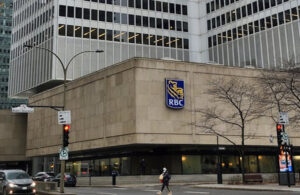I remember the first time I tried to get a mortgage exciting, nerve-wracking, and, to be honest, a little frustrating.
The dream of owning my own home felt so close, yet the approval process made it seem like an impossible hurdle.
One bank turned me down because my credit score wasn’t “perfect,” another buried me in paperwork, and a third kept me waiting for weeks with no clear answer.
It wasn’t until I found a lender that actually understood my situation that things turned around.
That experience taught me something important, not all banks make it easy to get a mortgage, but the right one can make all the difference.
If you’re in the market for a home in Canada, choosing a bank that simplifies the process can save you time, stress, and even money.
Some banks have flexible lending criteria, faster approvals, and lower down payment requirements, making homeownership more accessible.
Here are 10 of the easiest banks in Canada to get a mortgage from, especially if you’re looking for a smooth approval process.
1. TD Canada Trust

TD Canada Trust is known for being one of the most borrower-friendly banks in Canada.
They offer flexible lending options for first-time homebuyers and self-employed individuals, making it easier for people with non-traditional income sources to qualify.
Their online mortgage pre-approval process is straightforward, allowing you to get an idea of your financial capacity and other factors to consider when building or buying your first house.
However, if your credit score is on the lower side, you may need to provide additional documentation or a larger down payment.
2. Scotiabank

Scotiabank has mortgage programs tailored to different types of buyers, including newcomers to Canada and those with a limited credit history.
They offer competitive fixed and variable rate mortgages, along with a digital mortgage hub that simplifies the application process.
One of their standout features is the “Scotia Total Equity Plan,” which allows homeowners to access equity in their property more easily.
While their approval process is relatively smooth, some applicants have reported longer processing times, so it’s important to plan ahead.
3. RBC (Royal Bank of Canada)

RBC is one of the largest mortgage lenders in Canada, and for good reason.
They provide a variety of mortgage options, including low-down payment options for eligible buyers.
Their digital mortgage application system allows for quick pre-approvals, and their mortgage specialists are available to guide you through the process.
However, they tend to favour applicants with strong credit scores, meaning you may not get the best rates if your credit history is less than ideal.
Building your credit score is one of the tips to get the cheapest mortgage in Canada.
4. BMO (Bank of Montreal)

BMO is an excellent choice for first-time homebuyers, thanks to its cashback offers and lower down payment requirements.
Their “BMO First Home Mortgage” program is designed specifically for buyers with limited savings, helping them enter the housing market sooner.
Self-employed borrowers may also find BMO accommodating, as they offer flexible income verification options.
However, if you have a non-traditional income source, you may need to provide extra documentation to secure approval.
5. CIBC (Canadian Imperial Bank of Commerce)

CIBC makes it easier for newcomers to Canada to qualify for a mortgage through its “Newcomer to Canada” program.
Unlike some other banks, CIBC allows immigrants to get a mortgage even if they don’t have an established Canadian credit history.
They also offer special rates for first-time buyers and a streamlined online application process.
If your credit score is on the lower side, you may face slightly higher interest rates, but their flexible options make homeownership possible for more buyers.
Their flexibility makes getting a mortgage in Canada for foreigners much less stressful and frustrating,
6. National Bank of Canada

The National Bank of Canada stands out for its personalized approach to lending.
They often work with borrowers who may struggle to get approved elsewhere, making them a great option for self-employed individuals, freelancers, and those with irregular income.
Their mortgage experts take the time to assess each applicant’s financial situation, which can make approval easier if you don’t fit the traditional mold.
However, because they have fewer branch locations than the bigger banks, access to in-person support may be more limited depending on where you live.
7. HSBC Canada

HSBC is a strong option for foreign-income buyers, making it ideal for newcomers or those working internationally.
They offer a range of flexible terms and often provide better deals for high-net-worth individuals.
Their online mortgage pre-approval system is user-friendly, allowing buyers to check their eligibility before starting the application process.
While HSBC provides competitive mortgage options, some borrowers may find that their rates are not as attractive as those offered by larger Canadian banks.
The cost is one of many expenses to consider when buying a house in Canada.
8. Laurentian Bank

Laurentian Bank is a lesser-known but solid choice, particularly for buyers with unique financial situations.
They cater to freelancers, self-employed individuals, and those with non-traditional employment arrangements, making homeownership more accessible for people who may not qualify with larger banks.
Their mortgage approval process is flexible, but they have a smaller national presence, meaning fewer branches and potentially fewer online resources for applicants outside of Quebec.
9. Meridian Credit Union

Credit unions like Meridian are known for their borrower-friendly policies, typically providing more flexibility than traditional banks.
Meridian offers lower interest rates, personalized service, and more lenient lending criteria, especially for applicants with average credit scores.
Their “Flex Line Mortgage” combines a traditional mortgage with a line of credit, giving homeowners more financial flexibility.
However, since they are a credit union, you will need to become a member to access their mortgage products, and availability may be limited in certain provinces.
This factor plays a key role when considering the pros and cons of moving to a new house in Canada.
10. First National Financial

First National is one of Canada’s largest non-bank lenders, making it a great alternative for borrowers who struggle to get approved by major banks.
They offer mortgage products designed for individuals with unique financial situations, including those with less-than-perfect credit.
Their application process is more streamlined than traditional banks, and they frequently approve applicants who wouldn’t qualify elsewhere.
The main drawback is that their interest rates can sometimes be higher than those offered by the big banks, so it’s important to compare options before committing.
End Note
Getting a mortgage in Canada can feel overwhelming, but choosing the right lender can make all the difference.
Whether you’re a first-time homebuyer, self-employed, a newcomer, or someone with an unconventional financial situation, there’s a bank or lender that can work with you.
The key is to do your research, compare mortgage options, and apply with a bank that best suits your needs.
I hope you were able to find something useful in this blog post.
Comment below if you’ve had an experience with any of these banks, or if you’ve found another lender that made getting a mortgage surprisingly easy!